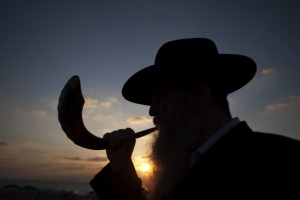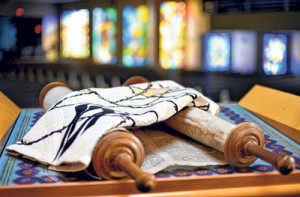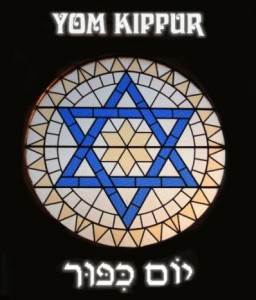 Wednesday at sundown, the holiest time of the year for Jewish people begins. Like my Jewish friends, I also believe in the Messiah; the only distinction is that I believe he already came in the person of Christ. As a Hebrew, Jesus loved to commemorate the holy days. Understanding the symbolism helps me appreciate the richness that points to our spotless Lamb who was slain.
Wednesday at sundown, the holiest time of the year for Jewish people begins. Like my Jewish friends, I also believe in the Messiah; the only distinction is that I believe he already came in the person of Christ. As a Hebrew, Jesus loved to commemorate the holy days. Understanding the symbolism helps me appreciate the richness that points to our spotless Lamb who was slain.
Rosh Hashanah
Called the Day of Remembrance in the Bible, Rosh Hashanah is commonly referred to as the Jewish New Year. It literally means “head of the year” and lasts for two days. There is little likeness between Rosh Hashanah, one of the most reverent of days, and the American custom of parties, parades, and football games.
However, one important similarity exists. While many Americans make resolutions, Jews become especially introspective, reflecting on the past year and looking ahead to the next one. Religious services focus on the concept of God’s sovereignty.
One important observance is the sounding of the shofar (a ram’s horn) in the synagogue as a call to repentance. Another is eating apples dipped in honey, representing a wish for a sweet new year. People also “cast off” by emptying their pockets (usually of small pieces of bread) into a river or creek, symbolically casting off their sins.
“Search me, God, and know my heart; test me and know my anxious thoughts. See if there is any offensive way in me,and lead me in the way everlasting.” Psalm 139:23-24
Days of Awe
The entire holiday, known as the Days of Awe or the Days of Repentance, lasts for ten days. Rosh Hashanah is the first day and Yom Kippur is the last. It is a time for serious introspection, considering the sins of the previous year and turning from them.
On Yom Kippur, Jews atone only for sins between man and God. During the Days of Awe, they atone for sins against another person. The first step is to seek reconciliation with that person, righting the wrongs committed against them if possible.
 A theme of the Days of Awe is that God has “books” in which he writes our names, recording who will live and who will die, who will have a good life and who will have a bad one. God writes in these scrolls on Rosh Hashanah; however, actions of repentance, prayer, and good deeds during the Days of Awe can alter his decree. The books are sealed on Yom Kippur until the next year. This explains the common greeting during this time: “May you be inscribed and sealed for a good year.”
A theme of the Days of Awe is that God has “books” in which he writes our names, recording who will live and who will die, who will have a good life and who will have a bad one. God writes in these scrolls on Rosh Hashanah; however, actions of repentance, prayer, and good deeds during the Days of Awe can alter his decree. The books are sealed on Yom Kippur until the next year. This explains the common greeting during this time: “May you be inscribed and sealed for a good year.”
The Sabbath that falls during this period is called Shabbat Shuvah meaning “Sabbath of the Return.” It is an especially important Sabbath with a reading from the book of Hosea that begins with the words “Return, O Israel, to the Lord your God.”
“However, do not rejoice that the spirits submit to you, but rejoice that your names are written in heaven.” Luke 10:20.
“Behold, I have inscribed you on the palms of my hands; your walls are continually before me.” Isaiah 49:16
Yom Kippur
Yom Kippur is the Day of Atonement, the holiest of all holy days for Jewish people. It’s a day set aside to “afflict the soul” by fasting, depriving oneself of pleasures, and repenting of sins from the previous year. Every year, new sins must be atoned for. Jewish people traditionally observe this holy day with a 25-hour-long fast and intensive prayer, often spending most of the day in synagogue services.
For those of us who trust that Christ’s work on our behalf is finished, may the following promises fill your heart with joy:
“When you were dead in your sins and in the uncircumcision of your flesh, God made you alive with Christ. He forgave us all our sins, having canceled the charge of our legal indebtedness, which stood against us and condemned us; he has taken it away, nailing it to the cross.” Colossians 2:13-14
“He sacrificed for their sins once for all when he offered himself.” Hebrews 7:27
May you be inscribed and sealed for all eternity. Shalom!